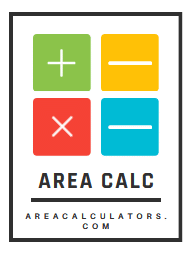Let’s say you have a 100-watt bulb running for 5 hours. How much energy did it actually use?
That’s exactly what the Power to Energy Calculator helps you figure out. Whether you're looking at household appliances, industrial motors, or battery systems — converting power to energy is essential for understanding usage and efficiency.
This tool turns complex calculations into a one-click solution. With just two inputs — power and time — you get the total energy used in seconds.
What Is Power to Energy Conversion and Why It Matters
Power is the rate at which energy is used. Energy is the total amount consumed over time. They’re closely connected, and converting between the two is vital in:
🔌 Electrical design
⚡ Energy billing and usage tracking
🔋 Battery discharge calculations
🏭 Industrial process planning
If power tells you how fast you're burning fuel, energy tells you how much you’ve burned in total.
Understanding this relationship helps save electricity, estimate battery life, and design better systems.
Formula and Variables
Energy (E) = Power (P) × Time (t)
This is the most basic and powerful formula in energy calculations.
📊 Variable Table
| Variable | Meaning |
|---|---|
| P | Power in watts (W) |
| t | Time in hours (h) |
| E | Energy in watt-hours (Wh) or kilowatt-hours (kWh) |
Example: How to Calculate Energy from Power
Let’s say you're running a 1500-watt heater for 3 hours.
-
P = 1500 W
-
t = 3 hours
Now apply the formula:
E = 1500 × 3 = 4500 Wh
That’s 4.5 kWh of energy. If your electricity costs $0.15 per kWh, then:
Cost = 4.5 × 0.15 = $0.675
This is how you estimate usage and billing based on power and time.
How to Use the Power to Energy Calculator
This tool makes things fast and easy. Here’s how to use it:
-
Input Power (in watts)
Enter the device's power rating, like 500W, 1500W, or more. -
Enter Time (in hours)
This is how long the device has been running — 0.5 for 30 mins, 1 for 1 hour, etc. -
Click Calculate
Instantly get the energy consumed, shown in watt-hours (Wh) or kilowatt-hours (kWh).
You can even reverse engineer usage by dividing energy by time to get power!
Where This Calculator Is Used in Real Life
🔌 Home energy audits – find out how much power your devices consume
🔋 Battery management – determine energy used over discharge cycles
🏗️ Industrial systems – manage electricity usage by machinery
🎓 Education – teaching physics and engineering fundamentals
🌱 Green energy setups – monitor solar panel output vs. energy stored
💡 Lighting design – predict energy draw of LED or CFL setups
If you're planning, saving, or analyzing — this tool is your shortcut.
Tips to Get the Most Accurate Results
✅ Convert minutes to hours (e.g., 30 mins = 0.5 h)
✅ Use kilowatts (kW) for larger devices — 1000 W = 1 kW
✅ Round off decimals only at the end
✅ Double-check time duration — it’s the most common source of errors
✅ Multiply by cost per kWh to estimate total energy bill
Common Mistakes to Avoid
❌ Confusing power (W) with energy (Wh) — they’re not the same
❌ Using time in minutes without converting to hours
❌ Forgetting to convert watts to kilowatts when needed
❌ Using average power when peak power is needed (or vice versa)
❌ Ignoring appliance idle time (some devices still draw power when off)
Small errors can make a big difference in energy cost predictions
FAQs:
1. What’s the difference between watts and watt-hours?
Watts measure rate of power use. Watt-hours measure total energy used over time.
2. Can I convert power to energy without time?
No — time is essential. Without time, you only know how fast energy is being used, not how much.
3. Is this calculator useful for solar panels?
Absolutely. It helps calculate how much energy is generated from solar panel wattage over hours of sunlight.
4. Can I use minutes instead of hours?
Yes, but you must convert minutes to hours first. For example, 30 minutes = 0.5 hours.
5. What is a kilowatt-hour (kWh)?
It’s 1000 watt-hours. Most utility companies charge based on kWh.
6. Can I use this for battery backup calculations?
Yes — enter the power draw and run-time of devices to estimate battery drain.
Conclusion:
The Power to Energy Calculator transforms two simple inputs — power and time — into clear, useful energy data. Whether you're running a home audit, managing equipment, or just curious about energy bills, this tool gives you a fast, accurate answer.
Understanding power and energy isn’t just for scientists. It’s for anyone who flips a switch, charges a phone, or cares about saving electricity.
💡 Know your usage. Control your cost. Power smarter.
